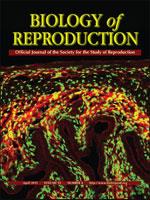Polo-like kinase (PLK) 4 is a unique member of the PLK family that plays vital roles in centriole biogenesis during mitosis. The localization of PLK4 on centrioles must be precisely regulated during mitosis to ensure correct centriole duplication. However, little is known about the function of PLK4 in mammalian oocyte meiosis. We addressed this question by examining the expression and localization of PLK4 in mouse oocytes and using RNA interference and protein overexpression to investigate its function in meiosis. PLK4 expression peaked at the germinal vesicle breakdown (GVBD) stage, and the protein was localized in the cytoplasm throughout meiotic maturation. Depletion of PLK4 caused meiotic arrest at the GV stage and suppressed CYCLINB1 and CDC2 activities. Moreover, PLK4 depletion prevented the de-phosphorylation of CDC2-Tyr15 in nucleus and induced a decrease in the level of the CDC25C protein. PLK1 overexpression failed to rescue GV-stage arrest in PLK4-depleted oocytes, whereas overexpressing PLK4 resulted in normal GVBD in oocytes in which PLK1 activity was inhibited. In addition, PLK4 overexpression did not cause abnormal spindle formation or affect extrusion of the first polar body. These results illustrate the fact that PLK4 is essential for meiotic resumption but may not influence spindle formation in mouse oocytes during meiotic maturation.
How to translate text using browser tools
4 March 2015
PLK4 Is Essential for Meiotic Resumption in Mouse Oocytes
Yi-Bo Luo,
Nam-Hyung Kim
ACCESS THE FULL ARTICLE

Biology of Reproduction
Vol. 92 • No. 4
April 2015
Vol. 92 • No. 4
April 2015
gamete biology
meiotic maturation
Mouse
oocyte maturation
PLK4




